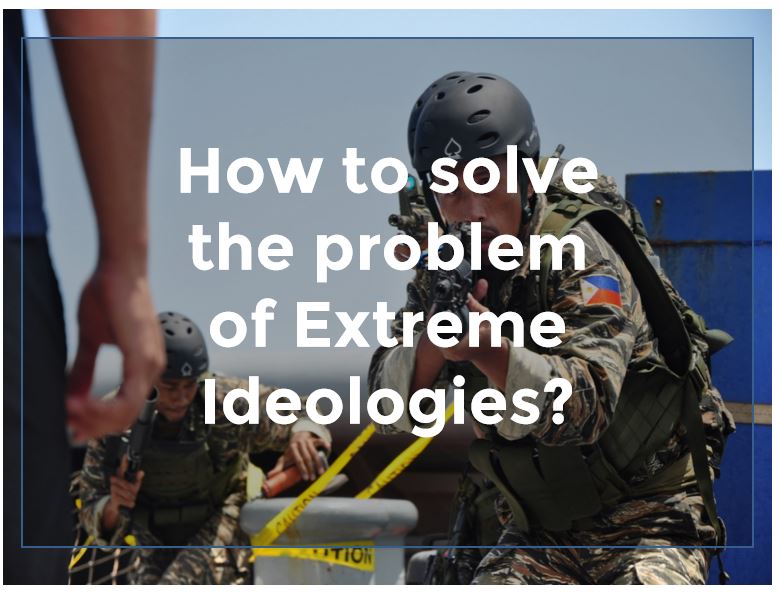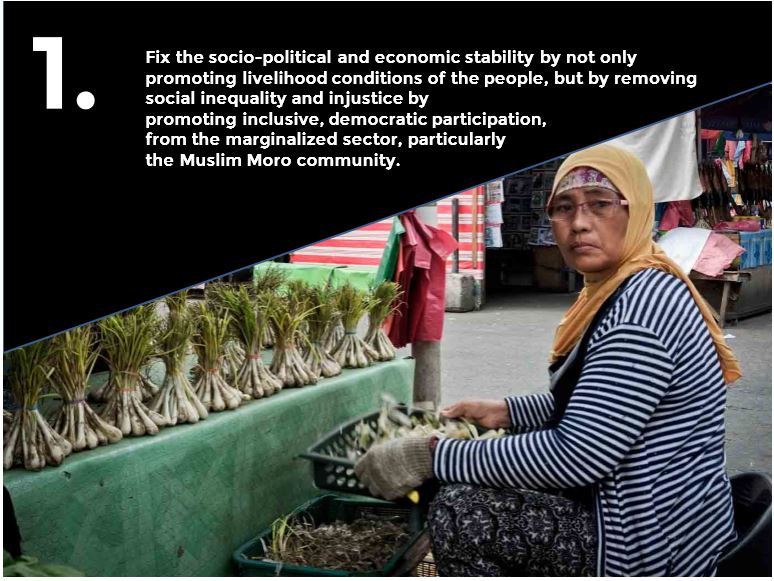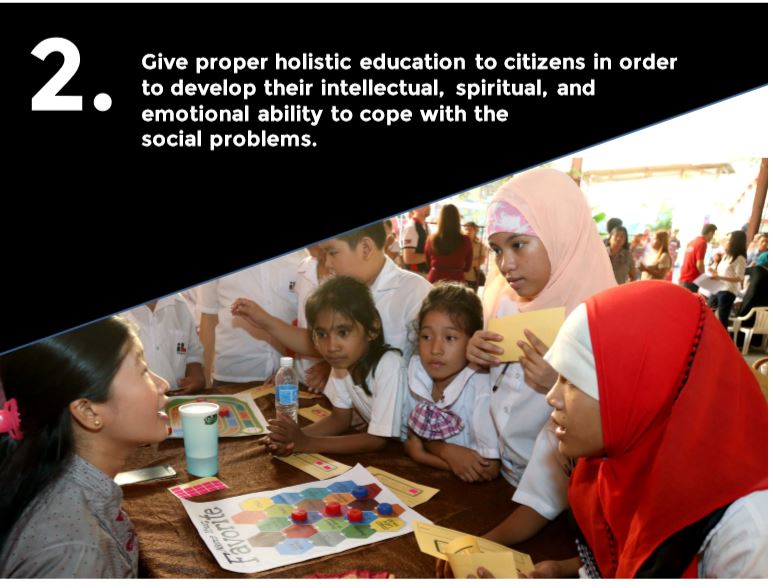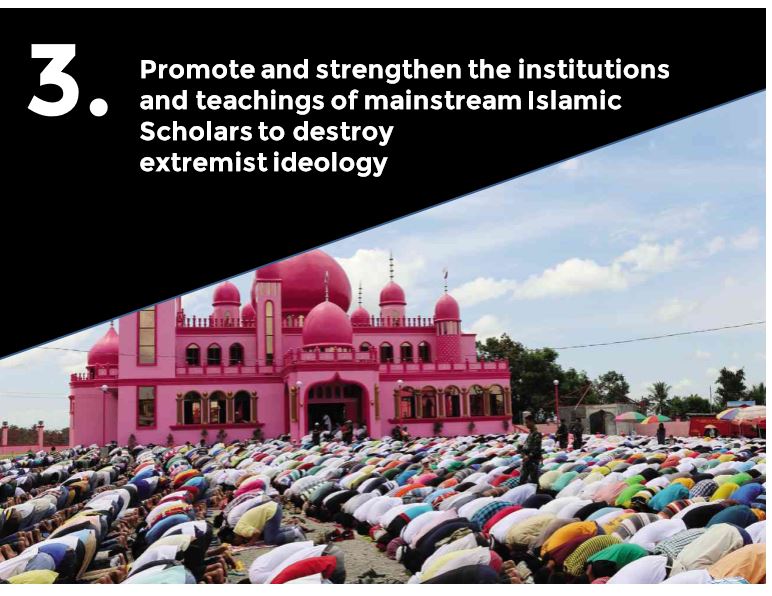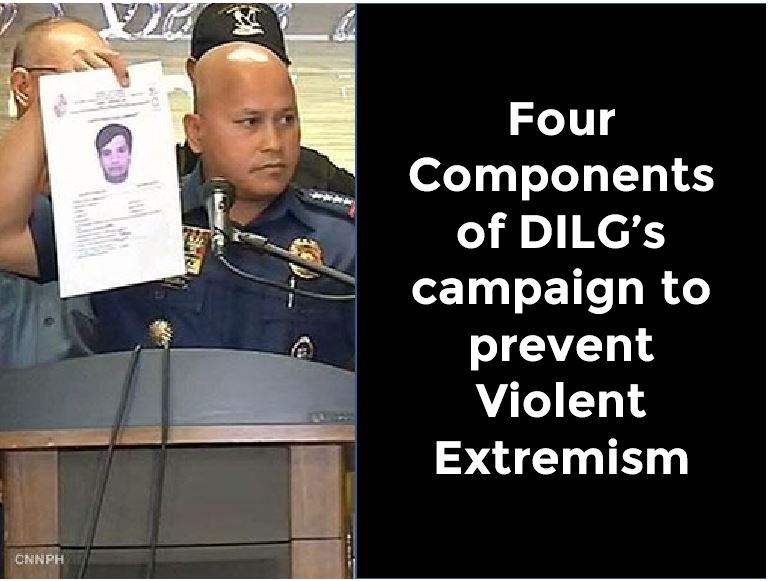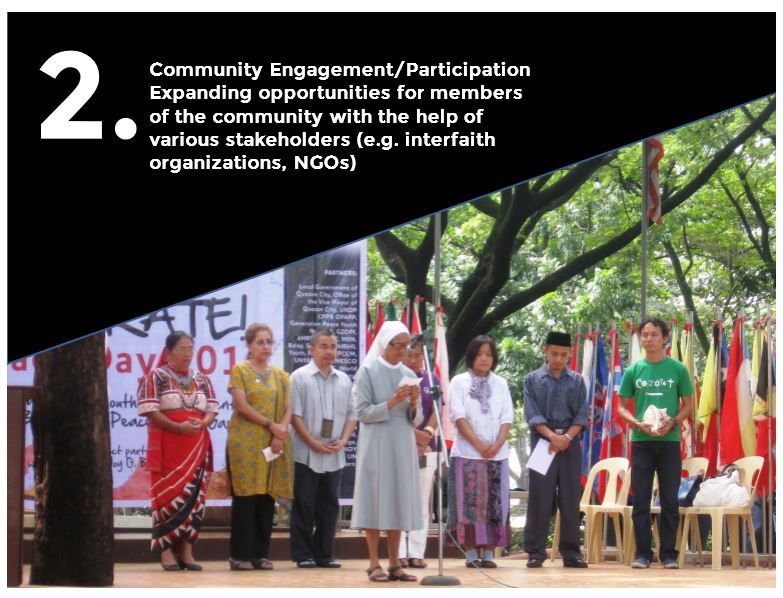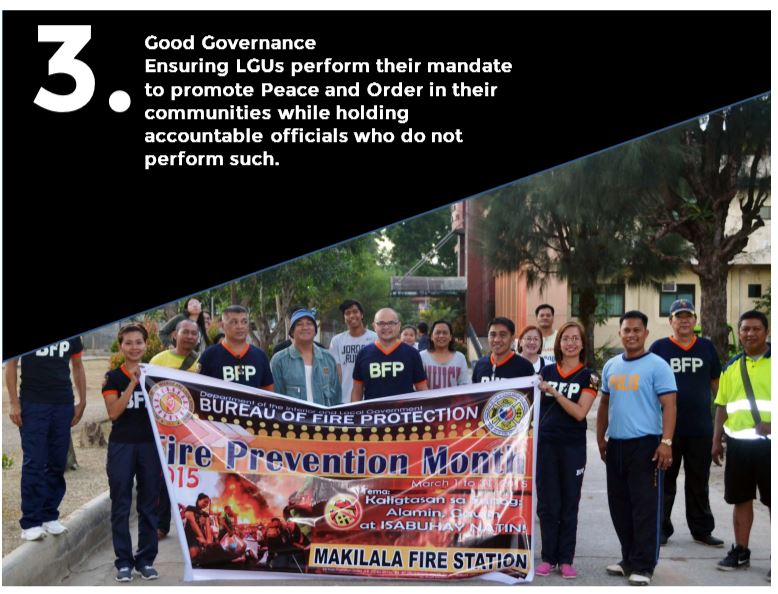How to solve the problem of extreme ideologies
First of all let’s discuss what extremism is.

Mainstream Sunni Islam is the one followed by 90% of Muslims. It teaches respect for the differences of opinion, respect for non-Muslims, treasures diversity, protects minorities and has an intellectual tradition of wisdom and reason.
On the other hand, extreme ideology pushed by Isis, Al Qaeda, Maute, and the rest , are violent reactions that does not tolerate differences in opinion, critical analysis and unfollowers. It misinterprets Islam to justify political ambitions.
So how does one solve the problem of extreme ideologies?
- Fix the socio-political and economic stability by not only promoting livelihood conditions of the people, but by removing social inequality and injustice by promoting inclusive, democratic participation from the marginalized , particularly the Muslim Moro community
2. Give proper holistic education to citizens in order to develop their intellectual, spiritual and emotional ability to cope with the social problems
3. Promote and strengthen the institutions and teachings of mainstream Islamic scholars to destroy extremist ideology.
The Department of Interior an Local Government (DILG) has a campaign to prevent violent extremism.
1. Law Enforcement
Philippine National Police (PNP) efforts to identify, conduct surveillance, and arrest individuals involved in extremist groups, including terrorism and de-radicalization efforts (e.g. Establishment of Salaam Police Center and other monitoring and intelligence-sharing efforts)
2. Community Engagement /Participation
Expanding opportunities for members of the community with the help of various stakeholders (e.g. interfaith organizations, NGOs)
3. Good governance
Ensuring Local Government Units (LGUs) perform their mandate to promote Peace and Order in their communities while holding accountable officials who do not perform such
4. Provision of Essential or Basic Services
Especially to impoverished and affected areas to ensure government presence is felt.
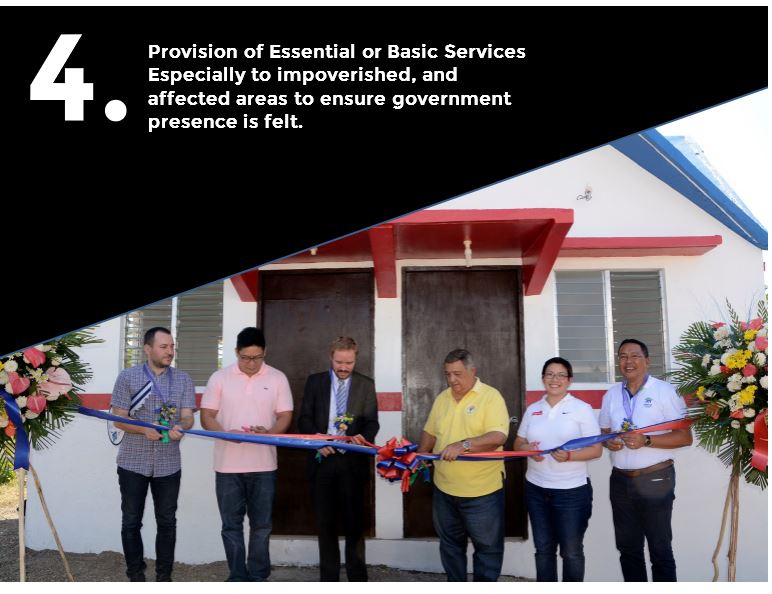
A major element has been missing from the conversation on the global fight against violent extremism that has focused on mostly top-down. This is how ordinary citizens and communities are successfully challenging the acute corruption that drives young people and others into the folds of radicals.” A new qualitative study by one of the authors documents 16 such cases in Afghanistan, Bangladesh, Bosnia-Herzegovina, Brazil, Egypt, India, Indonesia, Italy, Kenya, Mexico, Philippines, Russia, South Korea, Turkey, and Uganda. Research has shown that there is a link between corruption and violent extremism which is now starting to make its way into policy conversations and the popular consciousness. It is important that anti-corruption and integrity-building measures must be included in future security, peacebuilding, and reconstruction efforts.


